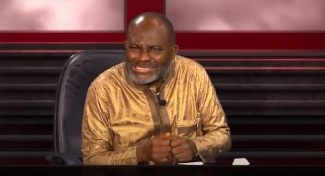AU rejects Ghana’s bid to host African Space Centre
The African Union (AU) has rejected a bid by Ghana to host the African Space Centre.
The Commissioner for Human Resources Science and Technology (HRST), Prof Sarah Agbor, has explained that the bid came in very late, leaving the AU with no option but to reject it.
Speaking at a briefing at the AU headquarters, she said “the deadline for the bid was October 30, 2018, and Ghana came in November so automatically, without even looking at the documents, you [Ghana] were not considered.”
Ethiopia, Egypt, Namibia and Nigeria put in bids but Namibia withdrew from contention later on.
The HRST Commissioner said Egypt, Nigeria and Ethiopia have been shortlisted by an independent high-level panel as possible a host country for the space centre.
She said one of them will soon be announced as the winner of the bid.
In April 2018, the Minister of Environment, Science and Technology, Prof Kwabena Frimpong-Boateng, indicated Ghana’s desire to host the space agency and served notices that Ghana was going to put in a bid.
The African Space Policy
The African Space policy and Strategy was adopted by Heads of State and Government of the AU to contribute to the realisation of the AU vision of an integrated, prosperous and peaceful continent, driven by its own citizens and representing a dynamic force in the global arena.
The policy and strategy is also in response to the aspirations stipulated under Agenda 2063.
Space science has been described as a global good essential in our everyday lives, including for our health, security, education, agriculture, communication and migration, among numerous other needs.
A joint AU-EU operational programme is the Global Monitoring for Environment and Security and Africa (GMES and Africa), designed to contribute to the implementation of the African Space Policy and Strategy.
The HRST Commissioner adduced that GMES and Africa is providing grants to regional and national institutions all over Africa to address water and natural resources, marine and coastal areas, as well as environmental issues, climate change and civil security, among other thematic areas.
The agency is in line with the AU’s plan to leverage space technologies for Africa.
The strategy was the first step towards realising an African Outer Space programme in line with the AU Development Agenda 2063.
GhanaSat-1
Ghana was hoping to ride on the successful launch of a satellite, GhanaSat-1, into space by some students of the All Nations University College in June 2017.
The satellite was handed over to the Japan Aerospace Exploration Agency (JAXA)
Prof Frimpong Boateng said the students had boosted the government’s confidence in potentially hosting the AU Space Agency.
GhanaSat-1 was developed with support from the Japan Aerospace Exploration Agency (JAXA) and has been embedded with low and high-resolution cameras to take pictures of Ghana and provide data that can be used to monitor the coastal areas of the country.
The project was aimed at stimulating interest in Science, Technology, Engineering and Mathematics (STEM) education in high schools and tertiary institution.
Source: Myjoyonline.com




